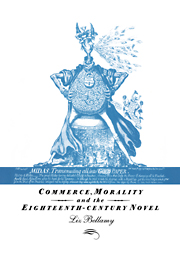2 - The economic context
Published online by Cambridge University Press: 18 December 2009
Summary
EARLY ECONOMIC THOUGHT
The second half of the eighteenth century was a period of immense importance in the history of economic thought. It saw the publication of David Hume's essays, of Sir James Steuart's Inquiry into the Principles of Political Oeconomy (1767) and, above all, of Adam Smith's Inquiry into the Nature and Causes of the Wealth of Nations (1776). It has been hailed as the age which saw the birth of a discourse. To it have been traced the origins of modern economics, and it is often regarded as the period when economics first became ‘scientific’, or ‘analytical’. Yet the works of the 1760s and seventies can be seen as the culmination of an old tradition as much as the start of a new one. They developed from a long history of more primitive, practical tracts, dealing with particular economic issues. Taken together, these tracts represent a vision of society, and even a concept of social mores and ethics, which were to form the bedrock on which the analytical systems of subsequent theorists were built.
The cornerstone of this early economic vision of society was the idea of the balance of trade. Writers expatiated at length on the undeniability of the philosophy that the fundamental purpose of trade was not to increase the general assets of the country, but to maximise the quantity of bullion that flowed in from abroad.
- Type
- Chapter
- Information
- Commerce, Morality and the Eighteenth-Century Novel , pp. 13 - 38Publisher: Cambridge University PressPrint publication year: 1998

